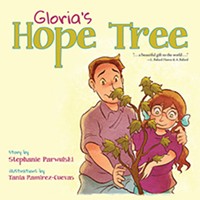A welcome Atwood re-run
Paperbacks on parade
If you missed it the first time around, you have another chance to pick up this 2006 stellar short story collection by one of our best writers (if "our" includes Canada). Anchor has re-released this fantastic, semi-autobiographical suite of stories that trace the life of a woman named Nell over a period of 60 or so years. Nell is seen from childhood, where she both loves and hates the "domestic arts" her mother introduces her to, on through to middle age, in which she becomes caretaker to her parents, sister and husband. Between those two bookends lies the fiery bulk of everyday life -- career, marriage, sex, home and, of course, books. Not every story in Moral Disorder is narrated by Nell, which adds a variety of viewpoints and impressions of the woman. The tales aren't in chronological order, either, which allows Atwood to swing to and fro among the years, filling the pages with observations on not only Nell's life but also "life as we've known it," the ins and outs of our culture during the past half-decade. Portraits of life at various schools and universities are like sharply cut diamonds, and Atwood's description of Nell's life on a farm with her husband is wild, rumbling and sensual, the literary equivalent of a sinuous jazz saxophone improvisation. All in all, Moral Disorder is warmer in tone, and often funnier, than most of Atwood's novels, but still finds the North Country's finest writer, as usual, celebrating humanity's limitless creativity and bemoaning its tendency toward pride and self-destructiveness.
This book by the man who wrote the best-selling Hot Zone was unjustly under-hyped and underappreciated when it was released in hardback last year. Preston gives us a fascinating look at a dedicated subculture of people who climb and explore the world's tallest trees -- the 350+-feet tall redwoods of northern California. Beginning in the 1980s, these climbing enthusiasts, scientists and, for lack of a better term, explorers, developed safe techniques for climbing to the upper reaches of "the blue whales of the plant kingdom." Once up in these humongous trees' crowns, the adventurers discovered a separate world of plants and animals that hardly any humans had ever seen before. The giant trees are hosts to many other life forms including fern gardens, berry bushes and rhododendrons that grow out of the accumulated soil on the redwoods' branches. Types of birds and bugs seen almost nowhere else make the trees their homes, too, but the most amazing thing the climbers discovered was that the trees' canopies are often divided into foliage "caves," creating a maze-like environment most humans have never imagined. Great nature writing, compelling and odd characters, and a strong narrative flow make for a fascinating combination in a book that was an unexpected delight.
Acclaimed novelist Robert Stone (Dog Soldiers, Damascus Gate) released his long-awaited memoir of the 1960s last year and didn't disappoint. Stone's varied experiences in those days made him a kind of Forrest Gump of the psychedelic era, and his memoir shows it. The book often resembles the characters in the novels he started writing when the '60s ended: hard living on the edge; wicked, subversive humor; the rough-and-tumble, hallucinatory landscapes of the counterculture; and the decay and violence of war. An unanticipated highlight of Prime Green was Stone's recounting of his work in the early 1960s as a writer for sleazy tabloids in New York. At one of the papers (the kind that simply made up sensationalistic stories), a cover story about a "dead vampire found on the street in New York" had to be scrapped -- the designer, while drawing fangs on a woman's photo, had spilled ink all over the image's mouth and chin. Remember that these papers were completely black and white. Stone kept the now-splattered image and simply rewrote the "story" so that it fit his new headline, "Mad Dentist Cuts Out Woman's Tongue," and they went to press an hour later. Prime Green also features tales from a harrowing 1971 trip to Vietnam as a journalist, and, in between the newspaper and 'Nam episodes, a lengthy stint with Ken Kesey and his bus-touring Merry Pranksters at the heart of the counterculture's visions and contradictions. Stone's memoir is one of the few -- very few -- accounts of the now-mythologized 1960s that conveys the sprawling sense of possibility and hope felt by so many then, even as some, like Stone, noticed that things also seemed to be breaking apart around them.
Moral Disorder and other stories by Margaret Atwood
Anchor, 240 pages, $13.95
The Wild Trees by Richard Preston
Random House, 320 pages, $16
Prime Green by Robert Stone
Harper Perennial, 272 pages, $13.95
Latest in Books
Calendar
-
An Evening With Phil Rosenthal Of "Somebody Feed Phil" @ Knight Theater
-
Kountry Wayne: The King Of Hearts Tour @ Ovens Auditorium
-

NEW WINDOW GALLERY-Pat Rhea-ACRYLIC PAINTINGS-April 05-30 2024 VALDESE, NC 28690 @ New Window Gallery/Play It Again Records
- Through April 30, 12 p.m.
-

Trap & Paint + Karaoke @ Zodiac Bar & Grill
-

LIVE MUSIC FRIDAYS!!! @ Elizabeth Parlour Room












